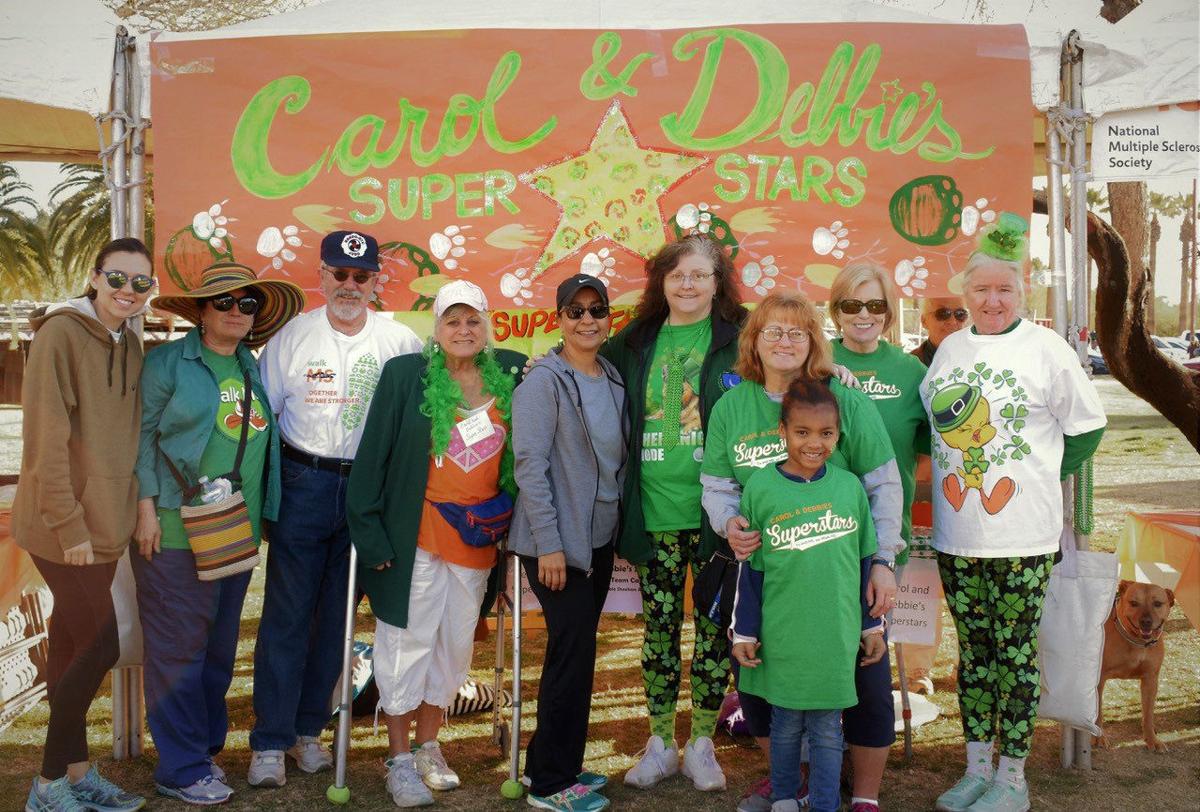Forward, March!
The phrase is the rallying cry for March — which happens to be both Multiple Sclerosis Awareness Month and the ideal time to kick off fundraising walks in Tucson.
Volunteers and organizers hope to celebrate both at Walk MS: Tucson on Saturday, March 7, at Reid Park.
The event seeks to raise at least $80,000 to support programs and services for those affected by MS; provide patient advocacy at local, state and national forums; and fund research for the disease that impacts more than 1 million people nationwide.
“We know there are at least 14,000 people living with MS in Arizona, but we think that number is closer to 20,000. MS is called the ‘snowflake disease’ — it is very different from person to person, which makes it difficult to diagnose and hard to treat,” said Karen LaPolice Cummins, president of the Arizona Chapter of the National MS Society.
MS is a chronic autoimmune disease in which the body attacks the myelin sheaths surrounding nerves and impairs the normal functions of the central nervous system, MS symptoms can range from numbness and tingling of the limbs to mobility challenges, as well as paralysis and loss of vision. Other symptoms include fatigue; balance and coordination issues; and cognitive problems.
Cummins said most MS patients are diagnosed between the ages of 20 and 50 and the prevalence is three times higher among women than men, but “there is really no face of MS.”
“Many people who are diagnosed may not feel comfortable telling their boss or the people they work with. They may tell only their family members and close friends, so that adds to the challenge for the MS Society in identifying those living with the disease,” Cummins said.
The chronic nature of the disease — and a lack of public awareness about research progress — presents other complications. Cummins said many people are not aware that over the past two decades, 16 disease-modifying drugs have been developed for those living with MS.
“People who have heart attacks talk about how they are survivors and people share when they have overcome cancer or when it is in remission, but MS is a lifelong disease,” Cummins said. “There is no cure and that can be challenging and overwhelming for people. But the upside is that there are so many advances happening now. That is why education is so important. There are more medication choices and more people can and do live healthier with MS.”
Carol Hunter echoes that sentiment. For the past 15 years, Hunter has been a co-facilitator with Cindy Lewis of the local MS Support Group that meets from 10 a.m to noon on the second Wednesday of each month at Casas Adobes Congregational Church, 6801 N. Oracle Road.
The group is open to patients living with MS, along with their families and friends.
“It offers a way to learn about MS and to get on top of your diagnosis,” said Hunter, who was diagnosed 24 years ago. “Just going online can be very scary. My whole thing is knowledge: You need to know where you are right now and know what to look for with other symptoms. ... The disease can progress, but you can’t assume that every issue you have is MS-related. The support group offers a very safe place to discuss concerns and meet others who are leading productive lives.”
Hunter, 64, said her symptoms are minimal. She exercises four to five days a week with a regime that includes swimming; balance and functional workouts; chair yoga; and light weight workouts. Hunter said she considers herself fortunate that MS has not impacted her cognitive abilities.
“When you have MS, your body loses some of its functions, so it is a lot like losing a loved one. You go through stages of grief — anger, frustration and loss — since your body is not always cooperating, but you have to start thinking about things that you can do. And the longer you live, you realize that everyone is dealing with something,” Hunter said.





